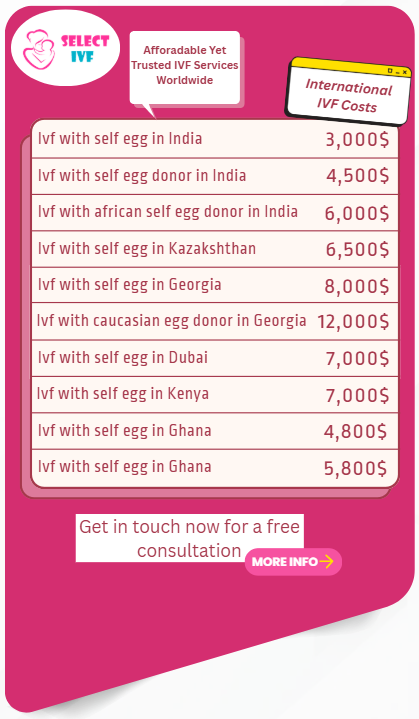Menstrual cycle fertility: what can you cite for fertility from the menstrual cycle?
Menstrual Cycle Fertility Treatment
Menstrual cycle fertility is the procedure enhancing you to find out the fertility of any of the female on the basis of her menstrual cycle. Menstrual cycle occurring in the female from menarche to the menopause is the prior cause of fertility of that female. In fact, the cycle is the preparatory phase for the fertility of women but sometimes due to the paucity of information on the cycle, many females conceive late. The process is a natural change coming very month that occurs in a female reproductive system that makes the pregnancy possible. During a cycle, oocytes are formed which is preparation for the production of egg in a female. The cycle is divided into two phases- the follicular phase and the luteal phase. At the very first day of the follicular phase after secretion of FSH (Follicle Stimulating Hormone), the brain receives the message for the production of egg and an egg is formed. At the end of egg formation, estrogen thickens the lining of the uterus for the fusion of gamete and development of an embryo. The luteal phase approx about 14 days in which the progesterone hormone is secreted which prepares the uterus for pregnancy. If fertilization does not occur then the rupture of the thickened wall takes place in the form of bleeding. Thus the fertility of the female is altered with the menstrual cycle of same. There are many other factors of fertility cycle which determines the fertility rate or fertility of the female.
What is the cause for prolonged bleeding?
The menstrual cycle is starting with the ovulation and ending with a preparation of uterus is basically of 28 days. Irregular or lengthy bleeding is also a case and infertility in female and determines the fertility. Prolonged bleeding might occur due to the reason of cervix cancer, fibroids, infection in the uterus, and a problem of blood clotting. In the cases of prolonged and irregular bleeding, ones should immediately move to the centre for the scrutiny of problem and treatment. Selecting a proper infertility centre or gynaecologist is a great task, but for us, we are comfortable with your query and efficient to your treatment. Thus the prolonged bleeding might also be the cause of infertility of the couple too. Sometimes couple finds a problem to conceive which is due to the cause of female infertility. A number of cases are reported with the problem of female infertility and all which is not easy to treat and diagnose. After the advice of a doctor, in case of prolonged bleeding, it is noted that either ovulation is not occurring regularly or there is something disrupting a lining. The menstrual cycle thus matters a lot for the fertility of couple.
No bleeding: what should you predict if you never menstruate?
No bleeding seems no preparation for pregnancy. Never menstruating means no ovulation and female could not conceive in a very normal case. There are many reasons which are the cause of no bleeding. Sometimes, in common for middle-class women underweight as per BMI (Body Mass Index) can be a common problem for no ovulation.
You can still conceive and have your own one
For normal ovulation and menstrual cycle, everything sound to be easy but the female with complications can also conceive but is a challenging job. With the development of science and technology, every impossible thing is now found to be possible in the easiest way. The patient or the suffering female can rely on our treatment as from last several years the centre is working with the menstrual fertility cases with the highest success rate. In such minute treatment, the selection should be of right choice and your own one. Once counselling session would secure your treatment at our centre and make you fertile. Every woman dream to be fertile as nurturing a child of own is a great pleasure for her.
Female’s cry: menstrual problem in female cause infertility
A menstrual cycle result confirms the fertility of female. Menstrual problem in female causes her to cry for the infertility treatment. But fertility centre India came with all the possible causes of menstrual cycle fertility problems arising in a female of different age group. No one can blame the problem of the menstrual cycle of her fault as it might be genetic or might be on your own. Blaming someone would not solve the problem rather should move for better treatment of the cycle to start it fast or regulate for proper pregnancy.
Conclusion
Menstrual cycle disorders can significantly impact fertility, but with proper diagnosis and treatment, many women can successfully conceive. Treatments range from ovulation induction medications and IUI to IVF and surgery for underlying conditions like endometriosis or fibroids. It’s important to consult with a fertility specialist to assess the underlying causes of menstrual irregularities and choose the best treatment plan. Maintaining a healthy lifestyle and managing stress can also play a role in improving menstrual cycle regularity and fertility.
FAQs: Menstrual Cycle and Fertility Treatment
How does the menstrual cycle affect fertility?
The menstrual cycle plays a crucial role in fertility, as it governs the release of eggs and the ability to conceive. A typical menstrual cycle lasts around 28 days, although it can vary. Fertility is highest around day 14 (ovulation), when an egg is released from the ovary. Disruptions in the menstrual cycle, such as irregular periods or anovulation (lack of ovulation), can impact fertility and may require treatment.
Can I conceive with an irregular menstrual cycle?
Yes, it is possible to conceive with an irregular menstrual cycle, but it may take longer or require medical intervention. Ovulation induction, IUI, or IVF can help women with irregular cycles conceive by stimulating ovulation or improving the chances of fertilization.
Is there a natural way to regulate the menstrual cycle?
Diet and exercise: A balanced diet and regular physical activity can help maintain a healthy weight and regulate hormones.
Herbal supplements: Some herbs, like chasteberry or cinnamon, are believed to help with hormone regulation, though they should be used under the guidance of a healthcare provider.
Stress management: Managing stress through techniques like yoga, meditation, or mindfulness can also help regulate hormone levels.
Read Also:









